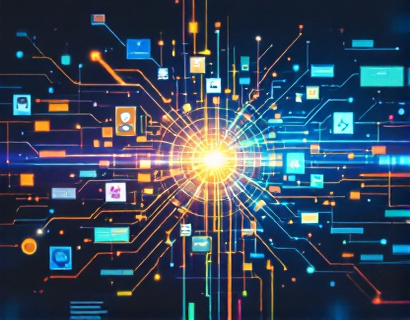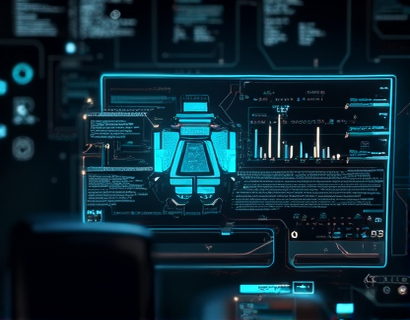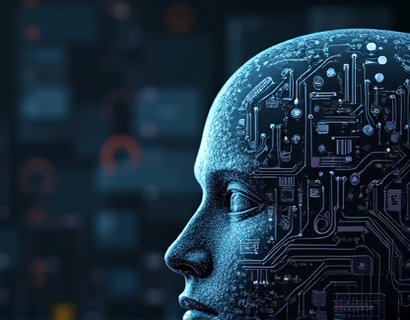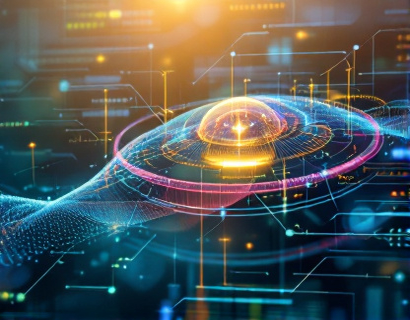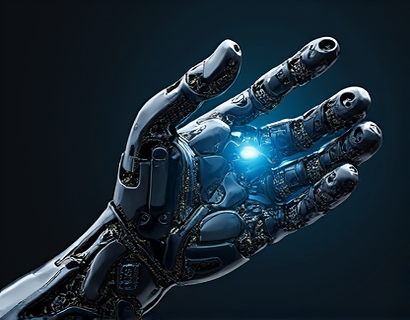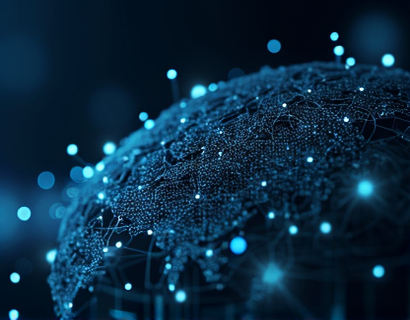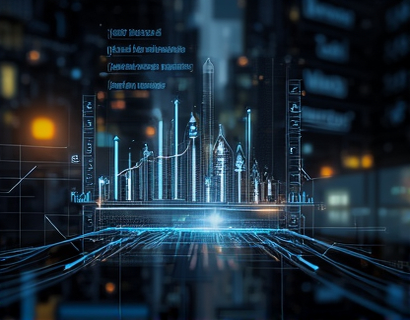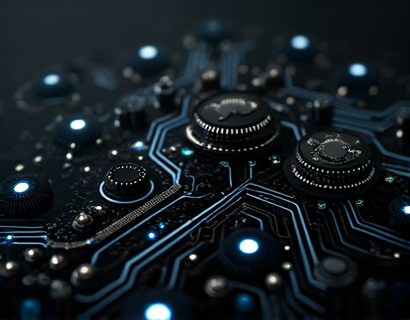Decentralized Productivity: Maximizing Efficiency with AI and Crypto Integration
The integration of artificial intelligence (AI) and cryptocurrency technologies is revolutionizing the way we approach productivity in the digital realm. This shift towards decentralized productivity not only enhances efficiency but also simplifies complex digital tasks, offering a more streamlined and secure experience for users. As we delve into this topic, it's essential to understand the foundational concepts of decentralization, AI, and crypto, and how they synergistically contribute to a more efficient digital ecosystem.
Decentralization, at its core, refers to the distribution of functions, processes, or activities away from a central authority. In the context of digital productivity, this means moving away from centralized platforms and services to a more distributed network where data and tasks are managed collectively by a network of nodes. This approach not only reduces the risk of single points of failure but also enhances privacy and security, as data is not stored in a single, vulnerable location.
AI, on the other hand, brings intelligent automation to the table. By leveraging machine learning algorithms, natural language processing, and predictive analytics, AI can perform tasks that traditionally required human intervention, often with greater speed and accuracy. In a decentralized environment, AI can optimize resource allocation, predict user needs, and automate repetitive tasks, thereby significantly boosting productivity.
Cryptocurrency and blockchain technology form the backbone of this decentralized ecosystem. Blockchain provides a transparent, immutable ledger for transactions and data storage, ensuring that all actions are traceable and verifiable. Cryptocurrencies facilitate seamless, peer-to-peer transactions without the need for intermediaries, reducing costs and increasing transaction speeds. Together, these technologies create a robust framework for decentralized applications (dApps) that can revolutionize various aspects of digital productivity.
Enhanced Security and Privacy
One of the most significant advantages of a decentralized productivity system is the enhanced security and privacy it offers. Traditional centralized systems are often targets for cyberattacks due to their centralized nature, where a single breach can compromise vast amounts of data. In contrast, a decentralized network distributes data across multiple nodes, making it far more difficult for attackers to gain access to sensitive information.
Blockchain technology ensures that all transactions and data entries are encrypted and linked in a chain, creating an unbreakable record. This not only protects user data from unauthorized access but also ensures the integrity of the information. Additionally, users have greater control over their data, as they can choose what information to share and with whom, without relying on central authorities to manage their privacy settings.
AI further enhances security by continuously monitoring the network for anomalies and potential threats. Machine learning algorithms can detect patterns indicative of malicious activity and respond in real-time, providing a proactive defense mechanism. This combination of decentralization, blockchain, and AI creates a highly secure environment for digital productivity, fostering trust and confidence among users.
Improved Efficiency and Automation
Decentralized productivity systems leverage AI to automate and optimize various tasks, leading to significant improvements in efficiency. For instance, AI-driven task management tools can analyze user behavior and preferences to prioritize tasks, allocate resources, and set deadlines. This not only helps users stay organized but also ensures that critical tasks are completed promptly.
Smart contracts, a key feature of blockchain technology, can automate complex workflows by executing predefined actions when certain conditions are met. In a productivity context, smart contracts can manage project workflows, payment processes, and collaboration tools, reducing the need for manual intervention and minimizing the risk of errors. This automation not only saves time but also ensures consistency and reliability in task execution.
AI-powered chatbots and virtual assistants can handle routine inquiries and support tasks, freeing up human resources to focus on more complex and creative work. These AI assistants can provide real-time assistance, offer suggestions, and even predict user needs based on historical data and patterns. This level of automation not only boosts productivity but also enhances the overall user experience by providing seamless and intuitive interactions.
Simplified Collaboration and Communication
Collaboration is a critical aspect of productivity, and decentralized systems offer innovative solutions to streamline communication and teamwork. Blockchain-based platforms can create secure and transparent workspaces where team members can share files, track progress, and collaborate in real-time, all while maintaining a tamper-proof record of activities.
Decentralized communication tools, powered by AI, can enhance collaboration by providing intelligent suggestions and automating routine communication tasks. For example, AI can analyze conversation history to suggest relevant topics, summarize meetings, and even translate messages in real-time, breaking down language barriers. This not only speeds up communication but also ensures that all team members are on the same page.
Furthermore, decentralized identity management systems can simplify the process of verifying identities and permissions within a team. By using blockchain to store and manage digital identities, users can easily grant or revoke access to specific resources and projects, ensuring that only authorized individuals can participate in collaborative efforts. This reduces the administrative overhead and enhances the overall efficiency of teamwork.
Cost Reduction and Accessibility
The decentralized and automated nature of AI and crypto integration can significantly reduce costs associated with traditional productivity solutions. By eliminating intermediaries and automating processes, these systems lower transaction fees, subscription costs, and operational expenses. This makes advanced productivity tools more accessible to a broader range of users, including small businesses and individual freelancers who may not have the resources to invest in expensive software solutions.
Cryptocurrencies enable micro-transactions and pay-per-use models, allowing users to pay only for the resources they consume. This pay-as-you-go approach not only optimizes cost but also promotes a more sustainable use of digital resources. Additionally, the global nature of blockchain and crypto technologies means that users from different parts of the world can collaborate and access tools without geographical constraints, fostering a more inclusive and diverse digital ecosystem.
Future Prospects and Challenges
As the integration of AI and cryptocurrency continues to evolve, the potential for decentralized productivity solutions is vast. Future developments may include more sophisticated AI algorithms that can predict and adapt to user needs in real-time, further enhancing efficiency and user experience. The adoption of layer 2 solutions and scalable blockchain technologies will also play a crucial role in addressing current limitations and enabling more widespread use cases.
However, there are challenges that need to be addressed to fully realize the potential of decentralized productivity. Regulatory uncertainties, scalability issues, and user adoption rates are among the key hurdles. Ensuring compliance with existing regulations while innovating within the decentralized space requires a balanced approach. Additionally, improving the user interface and experience for non-technical users is essential to drive broader adoption.
Education and awareness are also critical. As these technologies become more complex, providing users with the knowledge and tools to effectively utilize decentralized productivity solutions is paramount. Community-driven initiatives, tutorials, and support forums can play a significant role in fostering a knowledgeable and engaged user base.
Conclusion
The convergence of AI and cryptocurrency is paving the way for a new era of decentralized productivity, offering enhanced security, improved efficiency, simplified collaboration, and cost reductions. As these technologies continue to mature, the potential benefits for individuals and organizations are immense. By embracing decentralized solutions and leveraging the power of AI and crypto, we can create a more efficient, secure, and inclusive digital landscape. The future of productivity is decentralized, and the journey has just begun.






